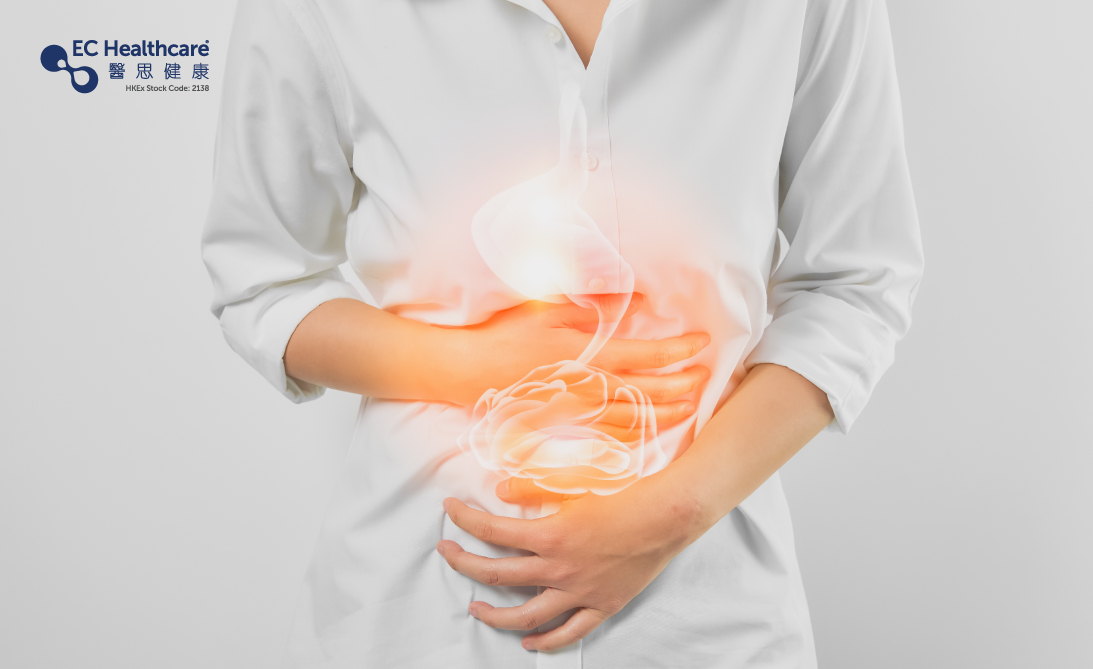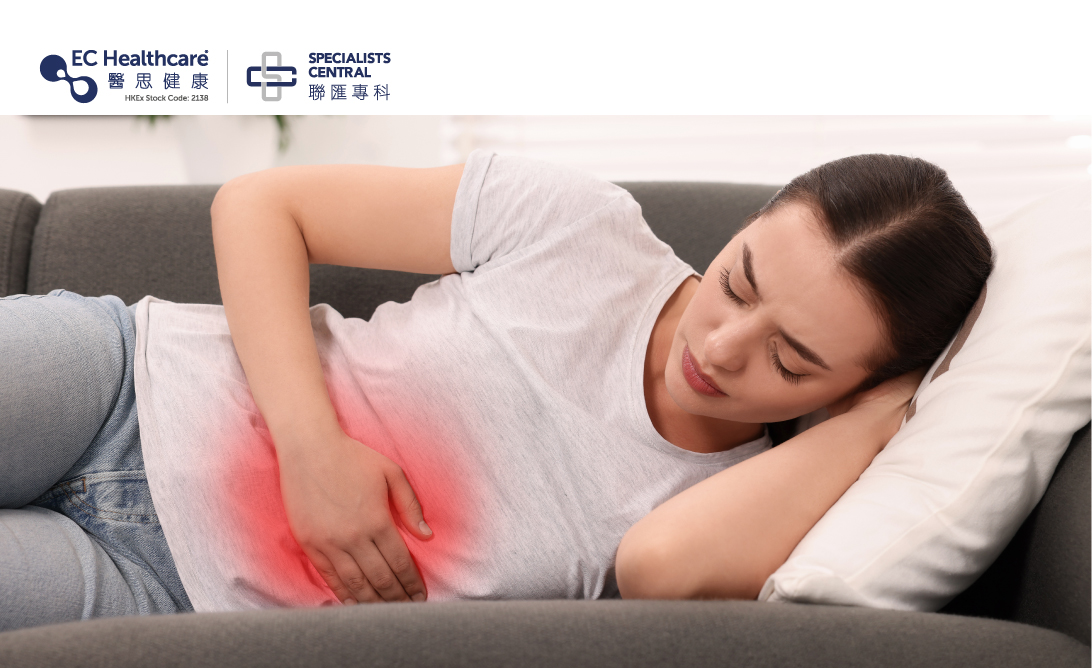【Gastritis】Dietary Choices, Symptoms, Treatment, and Prevention


When we talk about "gastritis," many people associate it with discomfort in the stomach after meals, often accompanied by feelings of nausea or vomiting. While some may consider it synonymous with indigestion, gastritis is actually a medical term used by doctors to describe the presence of stomach lining damage or inflammation observed through microscopic examination. It's important to note that gastritis can be classified as acute or chronic, and it should not be confused with gastroenteritis.

Acute versus Chronic: What Sets Them Apart?
Acute Gastritis:
Characteristics: Short-term inflammation of the stomach lining caused by irritation or infection.
Common Causes:
Infectious gastritis, including bacterial, viral, or fungal infections. Helicobacter pylori is a common bacterium that can cause acute gastritis.
Overconsumption of irritants, including medications (such as aspirin or other non-steroidal anti-inflammatory drugs, antibiotics, etc.), alcohol, and excessively spicy or acidic foods.
Common Symptoms: Acute gastritis usually improves spontaneously within a few days or weeks. However, individuals may experience symptoms such as upper abdominal pain, nausea, vomiting, and bloating during this period.
Chronic Gastritis
Characteristics: Long-standing inflammation of the stomach lining that can persist for months or even years.
Common Causes: Chronic gastric acid exposure, including long-term smoking, alcohol consumption, and unhealthy dietary habits.
Common Symptoms:
Chronic gastritis can result in gastric mucosal atrophy, reduced stomach acid secretion, and impaired digestion. It also poses a long-term risk for developing gastric cancer.
Many cases of mild chronic gastritis are asymptomatic. When symptoms do occur, they are typically milder than those of acute gastritis, such as mild stomach discomfort, nausea, and decreased appetite.
What are the symptoms of gastritis?
Gastritis symptoms can vary from person to person, and they differ depending on the type of gastritis. Here are some common symptoms associated with gastritis:
Upper abdominal pain, discomfort, or a feeling of bloating. The pain may worsen or improve after eating.
Nausea and vomiting, which may be more pronounced in the morning or when the stomach is empty.
Experiencing a loss of appetite and decreased food intake.
Resulting in diarrhea or constipation.
Feeling a burning sensation or experiencing acid reflux, particularly noticeable at night or when lying down.
Accompanied by other symptoms such as dry mouth, bad breath, and belching (burping).
Gastritis symptoms can sometimes resemble those of other diseases. If you experience the above-mentioned symptoms, it is recommended to seek timely medical attention for diagnosis and treatment by a doctor.
What are the treatment methods for gastritis?
The treatment methods for gastritis vary depending on the underlying cause and symptoms. Here are some common treatment methods for gastritis:
Prescription medications that suppress stomach acid and neutralize acid levels (common medications include H2 receptor antagonists and proton pump inhibitors).
If Helicobacter pylori infection is detected, a combination of antibiotics and high-dose proton pump inhibitors may be prescribed to eradicate the bacteria.
If a patient experiences pain, they may be prescribed pain relievers. However, it is advisable to use alternative pain relievers, such as prescription medications containing acetaminophen, instead of non-steroidal anti-inflammatory drugs.
The treatment of gastritis should be individualized based on specific circumstances and should be followed according to the doctor's instructions.
What should you eat for gastritis?
Diet plays a crucial role in managing gastritis. Here are some foods that are suitable for individuals with gastritis:
Mild and easily digestible foods: Examples include porridge, noodle soups, steamed fish, and steamed eggs.
High-fiber foods: Incorporate vegetables, fruits, whole wheat bread, oats, and other sources of dietary fiber.
Low-fat foods: Opt for lean meats, chicken breast, fish, and other low-fat sources of protein.
Non-irritating foods: Choose cooked vegetables, fruits, rice balls, and biscuits that are less likely to cause irritation.
Probiotic-rich foods: Include yogurt, sauerkraut, tofu, and other foods that contain beneficial bacteria.
Every individual's symptoms and dietary habits related to gastritis are different. It is important to develop a personalized diet plan based on your specific situation and the advice of your doctor. Avoid consuming foods that may irritate the gastric mucosa to prevent worsening of gastritis symptoms. Additionally, it is recommended to avoid overeating, excessive drinking, and other unhealthy eating habits, while maintaining good dietary hygiene, as this can help prevent the occurrence of gastritis.
Can fasting help alleviate gastritis symptoms?
Different fasting methods, such as the 16:8 fasting method, have gained popularity. Some studies suggest that fasting may have benefits such as reducing inflammation, accelerating metabolism, and potentially positively affecting gut microbiota. However, there is currently a lack of large-scale and rigorous medical research on this topic. If you already have acute gastritis or more severe chronic gastritis, it is important to be cautious because prolonged fasting may exacerbate gastritis symptoms. It is advisable to consult with a gastroenterologist before considering fasting practices.
Can consuming sweets and spicy foods worsen gastritis?
It is common for women to have a preference for consuming sweet desserts. However, there is currently no medical evidence directly linking excessive sugar intake to gastritis. Nevertheless, excessive sugar can be difficult to absorb in the intestines, which may contribute to the occurrence of diarrhea. Additionally, excessive sugar can be fermented by bacteria in the intestines, leading to the production of gas and causing bloating.
In recent times, there have been many beverages marketed as "zero-calorie" options. However, these beverages actually contain sugars that cannot be absorbed by the gastrointestinal system, which can potentially worsen symptoms of bloating and diarrhea.
In recent times, there has been a widespread trend of consuming spicy foods, such as spicy hot pot and sour and spicy noodles. When consuming such stimulating foods, it is important to exercise moderation. Individuals with gastritis should be particularly cautious to avoid worsening their condition. There have been instances where patients with gastritis experienced increased pain in the stomach for over two weeks after consuming spicy rice noodles against their better judgment. Upon undergoing a gastroscopy, inflammation in the stomach was discovered. As a result, they had to take stomach medication for several months and follow a bland diet to facilitate recovery.
Prevention methods for gastritis:
The key to preventing gastritis is to avoid factors that irritate the stomach lining. Here are some common prevention methods for gastritis:
Avoid overeating, binge drinking, and prolonged hunger. Also, steer clear of consuming overly stimulating, greasy, and spicy foods.
Maintain dietary hygiene and avoid consuming unclean food.
Manage stress through appropriate rest and exercise.
Avoid alcohol and smoking, as excessive consumption of alcohol and smoking can irritate the stomach lining and cause gastritis.
Use medication appropriately and avoid long-term use of non-steroidal anti-inflammatory drugs (NSAIDs), aspirin, and other medications that can irritate the stomach lining.
Use separate serving utensils during group meals to reduce the risk of Helicobacter pylori infection. If you experience persistent discomfort in the stomach, consider checking for Helicobacter pylori infection and seek early treatment.
Preventing gastritis starts with adopting comprehensive preventive measures in daily life to effectively reduce the occurrence of gastritis.
*The above information is provided by Dr. Navin Sakhrani, a specialist in Gastroenterology & Hepatology, for reference and educational purposes only.










